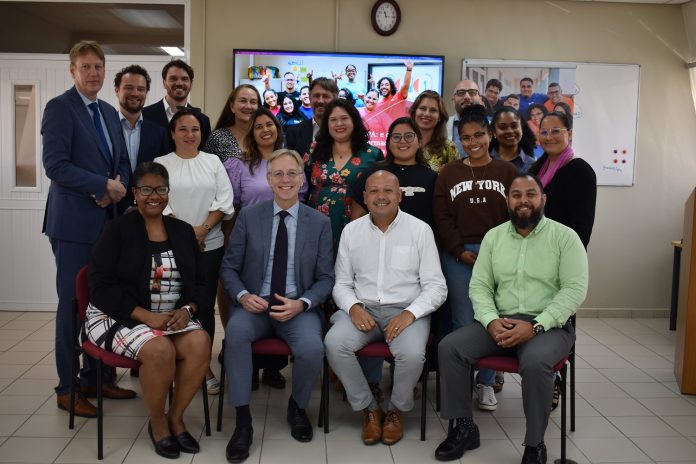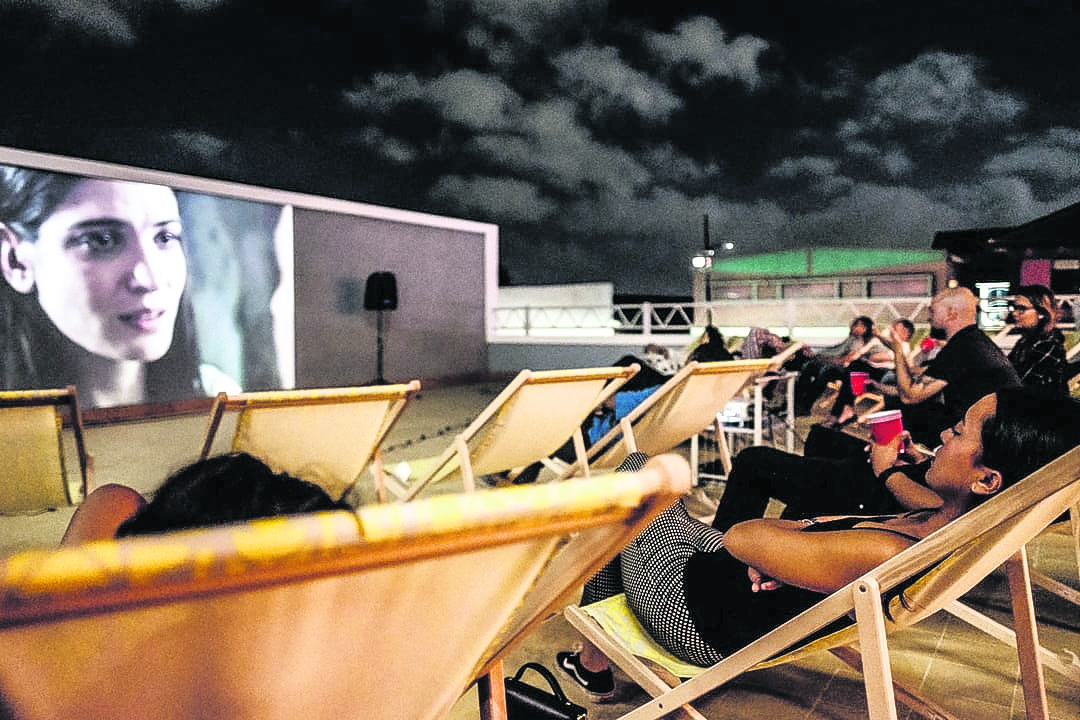Recently, the Pedagogical Institute of Aruba (IPA) received a visit from Robbert Dijkgraaf, minister of Education, Culture and Science of the Netherlands, together with representatives from the VNO (Representative of the Netherlands in Oranjestad). This is in the context of the Kibrahacha project, which is about “Educating Together” between the ABC islands.
In Aruba there are various primary schools that work with IPA in this project to educate IPA’s students together in practice.
The goal of the meeting was to see how all the different actors are experiencing the Kibrahacha project and at the same time meet the Dutch minister of Education. During the meeting, the possibility was explored on how the Netherlands can continue contributing to this positive development.
The morning started with a presentation by drs. Marilyn Richardson, general director of IPA. Richardson explained the courses that IPA offers, the collaboration of the institute with other local and international institutes and organizations. Richardson also elaborated on the vision and goal for the future for IPA, and the challenges that come with it.
Minister Dijkgraaf said that he recognizes the challenges confronted by the community and education in Aruba also play a role in the Netherlands, and he is interested in finding possibilities to collaborate and see how every side can help each other with these challenges. He said also that they are exploring the possibility of a Royal Grant to give opportunity for all students in the Kingdom of the Netherlands can do their internships in the countries within the Kingdom.
Leader of the Kibrahacha project, drs. Marisol Croes said that Kibrahacha has a positive effect on the collaboration between the institutes and the primary schools.
Also present were two third-year students of the primary education study at IPA, namely Nataly Tobar and Thyara Doornkamp. The students told about how they experience the changes that have been taking place through the Kibrahacha project in a very positive way. One of the changes is the coupling of theory received at IPA and the contents of practice in the same semester.
The way Kibrahacha is organized on the ABC islands – that is, Aruba, Bonaire and Curaçao – can be an example for the Netherlands in their regional collaboration.




















